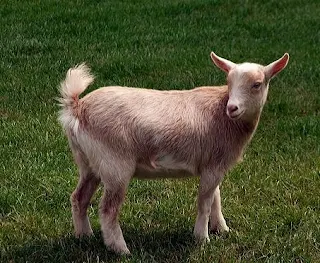Why Goat Meat is a Star in Nigerian Cuisine: Nutrition, Culture and A Killer Asun Recipe
Why Goat Meat is a Star in Nigerian Cuisine: Nutrition, Culture and A Killer Asun Recipe
The Unbeatable Flavor and Culture of Nigerian Goat Meat
Have you ever stepped into a vibrant Nigerian wedding, birthday, or festival and caught the rich, aromatic scent of goat meat simmering? In Nigeria — and across Africa — goat meat is more than food. It’s a centerpiece of joy, tradition, and celebration. Loved for its earthy flavor, impressive health benefits, and deep cultural roots, goat meat deserves a proud place in every kitchen. Here’s why it remains an African culinary icon and how you can bring its bold taste to your own table.
4 Reasons Goat Meat is King in Africa
From bustling city markets to rural farms, goat meat holds a place of honor. Here’s why:
1. Remarkable Availability and Affordability
Goats are hardy animals, perfectly suited to the African climate. They are a primary livestock for small-scale farmers, making goat meat a local, accessible, and often more budget-friendly protein than beef.
2. A Nutritional Powerhouse
For health-conscious eaters, goat meat is a dream. It's packed with high-quality protein, iron, and Vitamin B12, but it's significantly leaner and lower in fat than beef, pork, or even chicken. It's a heart-healthy choice without sacrificing flavor. Explore more African superfoods and nutrition benefits.
3. Deep-Rooted Cultural Significance
In Nigeria, food is culture. Goat meat is a symbol of hospitality and celebration. It's the star of special occasions, from weddings to religious ceremonies like sacrifices and rites of passage, representing fertility and prosperity.
4. A Flavor That Stands Out
Described as rich, slightly sweet, and deeply savory, goat meat has a distinct "earthy" flavor that sets it apart. Its versatility is unmatched—it shines in hearty stews, aromatic curries, and sizzling grilled dishes.
Your Gateway to Nigerian Goat Meat: The Asun Recipe
Ready to taste the magic? Let's make Asun, a famous Nigerian spicy grilled goat dish from the Yoruba people. It’s bold, peppery, and incredibly addictive.
Authentic Nigerian Asun (Spicy Grilled Goat)
Ingredients:
- 2 lbs goat meat, cut into bite-sized cubes
- 1/2 cup vegetable oil
- 2-3 tablespoons ground scotch bonnet pepper (adjust to your heat preference!)
- 1 large red onion, roughly chopped
- 2 tablespoons dried crayfish, ground (optional, for authentic umami flavor)
- 1 tablespoon onion powder
- 1 tablespoon garlic powder
- 1 tablespoon ginger powder
- 1 teaspoon salt (or to taste)
- 1 large bell pepper (green or red), chopped
- 2-3 scallions, chopped
- 1 teaspoon thyme or curry powder (optional)
Instructions:
- Marinate: In a large bowl, combine the goat meat, half of the chopped onions, onion powder, garlic powder, ginger powder, salt, and dried crayfish (if using). Add 1/4 cup of oil and mix thoroughly. Cover and refrigerate for at least 2 hours, or ideally overnight.
- Cook the Meat:
- Oven Method (Easiest): Preheat oven to 375°F (190°C). Spread the marinated meat on a baking sheet and bake for 30-35 minutes until cooked through and slightly charred.
- Grill/Pan-Sear Method (For More Flavor): Thread the meat onto skewers and grill over medium heat, or pan-sear in a hot skillet with a little oil until well-browned and cooked.
- Sauté and Combine: In a large skillet, heat the remaining 1/4 cup of oil over medium-high heat. Add the remaining onions and sauté for 2 minutes. Add the ground scotch bonnet pepper and stir for another minute.
- Bring it Together: Add the cooked goat meat to the skillet, followed by the chopped bell peppers and scallions. Stir-fry for 3-4 minutes until the vegetables are slightly softened but still crisp.
- Serve: Your Asun is ready! Serve immediately as a main dish with Fried Plantains, rice, or as a hearty appetizer.
Beyond the Plate: The Goat's Role in Nigeria's Economy
The importance of goats in Nigeria goes far beyond the kitchen. Goat farming is a vital part of the agricultural economy, especially for rural households. They are a key source of income, providing meat, milk (from breeds like the popular Nigerian Dwarf Goat), and hides.
The government and NGOs actively promote goat farming to improve food security and create sustainable livelihoods, recognizing its power to lift communities. Learn more about profitable livestock farming in Africa.
Ready to Explore More African Flavors?
- Kenya Kachumbari: A Fresh African Salsa
- Buttermilk Fried Yams: The Perfect Comfort Food
- Nigerian Breakfast Fried Akara and Ogi
Have you ever tried goat meat? What's your favorite way to prepare it? Share your thoughts and cooking stories in the comments below!
🍲 Love African flavors and stories? Get fresh recipes and articles delivered to your inbox.
✉️ Subscribe to The African Gourmet



























